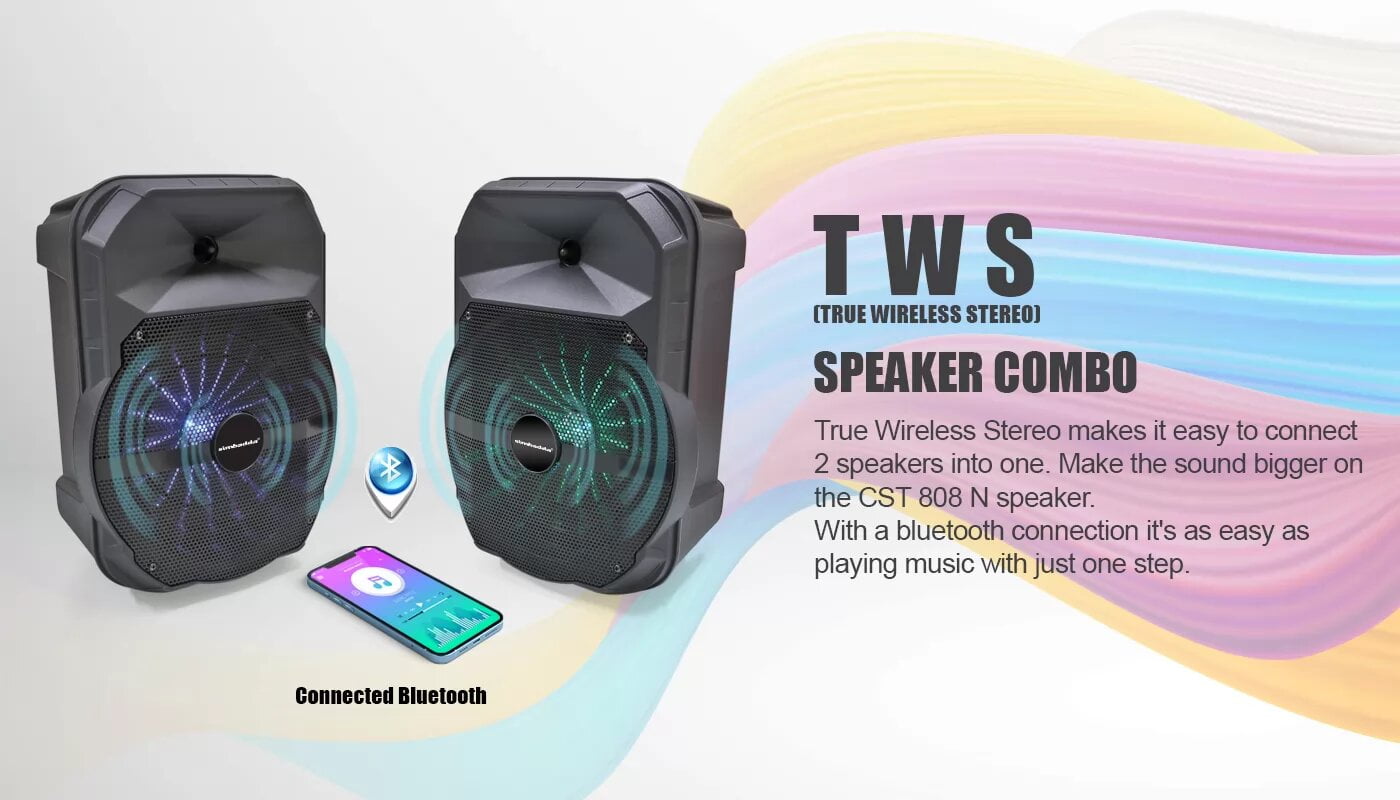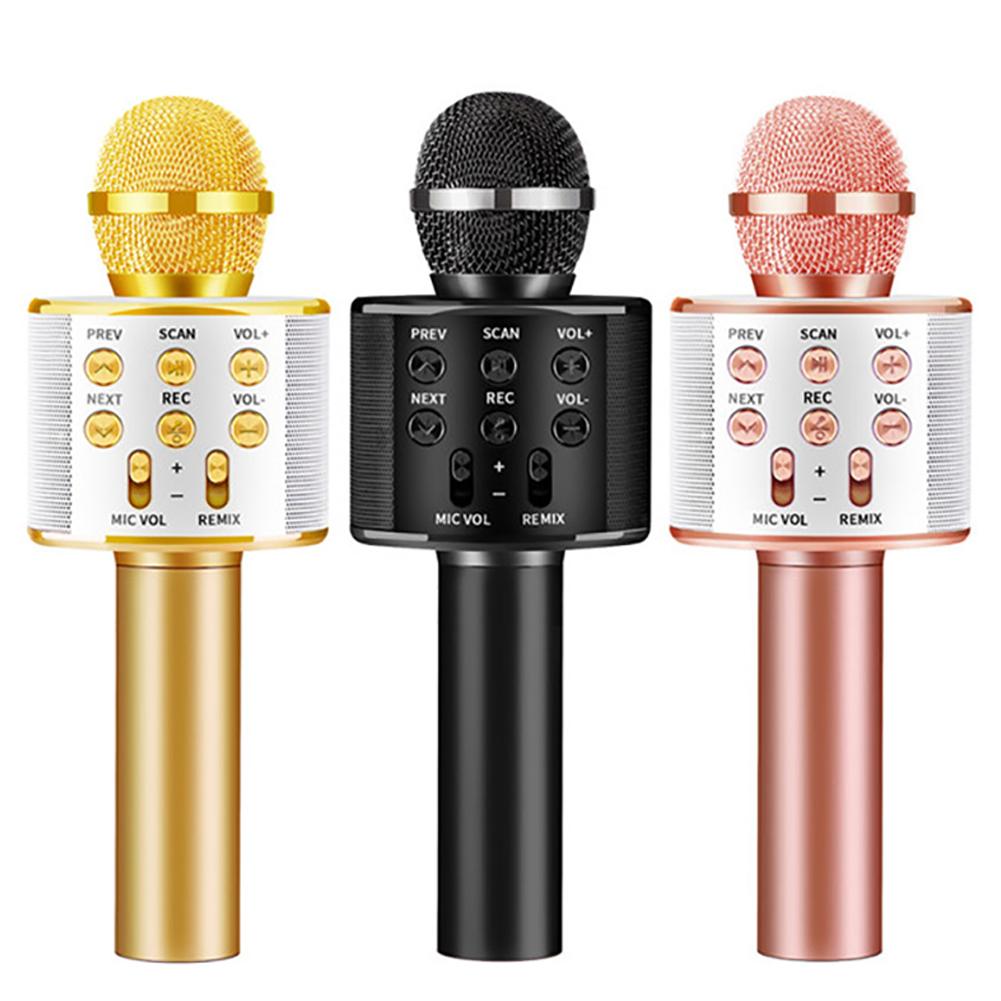Karaoke Speaker systems have exploded in popularity, transforming home entertainment and social gatherings. From compact portable units ideal for impromptu singalongs to powerful professional setups for large-scale events, the market offers a diverse range of options catering to every need and budget. This comprehensive guide delves into the world of karaoke speakers, exploring their types, features, setup, maintenance, and more, helping you find the perfect system to unleash your inner rockstar.
Understanding the nuances of karaoke speakers requires navigating a landscape of varying specifications and features. This guide aims to simplify the process, offering clear explanations and comparisons to assist in informed decision-making. Whether you’re a seasoned karaoke enthusiast or a curious newcomer, we’ll equip you with the knowledge needed to select and utilize a karaoke speaker system effectively.
Karaoke Speaker Types
Karaoke speakers come in a variety of shapes and sizes, each designed to meet different needs and budgets. The choice depends heavily on the intended use, from intimate home gatherings to larger professional events. This section will classify karaoke speakers based on size and explore their audio capabilities.
Portable Karaoke Speakers
Portable karaoke speakers are compact and easily transportable, ideal for parties, picnics, or casual singalongs. They typically feature built-in rechargeable batteries, offering cordless convenience. Designs often prioritize portability over powerful sound, although advancements continue to bridge this gap. Expect power outputs ranging from 10 to 50 watts, with frequency responses generally covering the mid-range well. Many include basic sound effects like echo and reverb.
A common example is a small, suitcase-style speaker with a built-in handle and wheels.
Home Theater Karaoke Speakers
Home theater karaoke speakers offer a significant step up in audio quality and power compared to portable options. Designed for dedicated home karaoke setups, these systems prioritize immersive sound and often include multiple speakers for a surround sound experience. Power outputs range from 50 to 200 watts or more, providing ample volume for larger rooms. Frequency response is typically wider, extending to lower bass frequencies for richer sound.
These systems may incorporate more sophisticated sound effects and advanced features like Bluetooth connectivity and multiple microphone inputs.
Professional Karaoke Speakers
Professional karaoke speakers are built for demanding environments, such as nightclubs, bars, and large-scale events. They are designed for high power output, exceptional clarity, and durability. Power outputs can exceed 200 watts, often reaching several hundred watts or more. These speakers are typically larger and heavier, often requiring external amplification. They boast superior frequency response, delivering crisp highs and deep, powerful bass.
Advanced features like multiple microphone inputs with individual volume controls, EQ settings, and professional-grade sound effects are common.
| Type | Size | Power Output (Watts) | Key Features |
|---|---|---|---|
| Portable | Compact, easily transportable | 10-50 | Rechargeable battery, basic sound effects, Bluetooth |
| Home Theater | Larger, multiple speakers possible | 50-200+ | Multiple microphone inputs, enhanced sound effects, superior sound quality |
| Professional | Large, heavy-duty | 200+ | High power output, superior clarity, multiple microphone inputs with individual controls, advanced sound effects |
Key Features and Specifications
Several key features and specifications significantly impact the performance and overall user experience of a karaoke speaker. Understanding these aspects is crucial for making an informed purchase decision.
Connectivity and Audio Formats
Bluetooth connectivity is almost standard, offering wireless streaming from smartphones and tablets. USB ports allow for direct playback from USB drives, while AUX inputs provide compatibility with various audio devices. Support for common audio formats like MP3 and WAV ensures broad compatibility with different music sources. The amplifier type significantly influences sound quality; Class D amplifiers are known for their efficiency and power, while Class AB amplifiers often provide warmer, richer sound.
| Specification | Effect on Sound Quality |
|---|---|
| Speaker Size (Woofer/Tweeter) | Larger speakers generally produce deeper bass and clearer highs. |
| Impedance | Lower impedance (e.g., 4 ohms) can result in louder sound but may require a more powerful amplifier. |
| Total Harmonic Distortion (THD) | Lower THD indicates cleaner, less distorted sound. |
| Signal-to-Noise Ratio (SNR) | Higher SNR means less background noise. |
Connectivity and Compatibility
A wide range of connectivity options ensures seamless integration with various devices. Understanding these options and their respective advantages and disadvantages is crucial for optimal performance.
The booming karaoke speaker market is seeing innovative advancements. For those seeking to build a dedicated website showcasing their karaoke speaker products, consider using a robust platform like rive wordpress for its ease of use and customization options. This allows for a professional online presence that effectively markets your karaoke speakers to a wider audience. Ultimately, a strong online strategy is key for success in this competitive market.
Connectivity Options and Device Compatibility
Bluetooth offers wireless convenience, but range can be limited and prone to interference. USB connections provide direct access to music files, while AUX inputs maintain compatibility with older devices. Wireless microphones, often using UHF or 2.4GHz technology, add versatility and freedom of movement during karaoke sessions. The connection method for wireless microphones varies; some use dedicated receivers, while others integrate directly with the speaker.
- Smartphones/Tablets: Bluetooth, USB (with adapter), AUX
- Laptops: Bluetooth, USB, AUX
- Computers: Bluetooth, USB, AUX
- MP3 Players: AUX, USB
- Wireless Microphones: Dedicated receiver or integrated wireless connection
Setting up and Using a Karaoke Speaker
Setting up and using a karaoke speaker is generally straightforward, but optimizing the audio settings for the best sound quality requires attention to detail. Troubleshooting common connectivity issues can also ensure a smooth karaoke experience.
Setup and Optimization

Source: blogpress.id
- Connect the power cord.
- Connect your audio source (smartphone, laptop, etc.) via Bluetooth, USB, or AUX.
- Connect microphones to the designated microphone inputs.
- Adjust the volume levels for the main speaker and microphones.
- Fine-tune the equalizer (EQ) settings to optimize bass, midrange, and treble to your preference and room acoustics.
- Experiment with different sound effects (echo, reverb) to achieve the desired vocal quality.
Troubleshooting Connectivity Issues, Karaoke Speaker
If you experience connectivity problems, check the following: Ensure the audio source is properly connected, verify Bluetooth pairing, check the power supply, and try different cables if necessary. If using wireless microphones, check the battery levels and ensure the receiver is properly connected to the speaker. Multiple microphones can be connected to a karaoke speaker through separate audio inputs, allowing individual volume adjustments.
Maintenance and Care
Regular maintenance is essential for extending the lifespan of your karaoke speaker and ensuring optimal performance. Proper cleaning, storage, and preventative measures can help avoid common issues.
Preventative Maintenance
- Clean the speaker regularly with a soft, dry cloth.
- Avoid exposing the speaker to extreme temperatures or moisture.
- Store the speaker in a cool, dry place when not in use.
- Avoid overloading the speaker by playing it at excessively high volumes.
- Regularly check all connections to ensure they are secure.
Price and Value
The price of karaoke speakers varies widely depending on features, quality, and brand. Determining the value involves considering features, sound quality, durability, and overall user experience in relation to the price.
Price Ranges and Features

Source: inam.pk
| Price Range | Features |
|---|---|
| Under $100 | Basic features, limited power output, portable |
| $100-$300 | Improved sound quality, more power, additional features (Bluetooth, multiple inputs) |
| $300-$500 | High-quality sound, multiple speakers, advanced features, home theater-style |
| Over $500 | Professional-grade sound, high power output, advanced features, durable construction |
Popular Karaoke Speaker Brands and Models
Several brands dominate the karaoke speaker market, each offering a range of models with varying features and price points. Customer reviews and brand reputation play a significant role in consumer choice.
Leading Brands and Models
| Brand | Model | Price (approx.) | Key Features |
|---|---|---|---|
| Brand A | Model X | $250 | High-quality sound, Bluetooth, multiple inputs |
| Brand B | Model Y | $400 | Powerful output, advanced sound effects, multiple speakers |
| Brand C | Model Z | $150 | Portable, good sound quality, basic features |
Karaoke Speaker Applications
Karaoke speakers find applications in diverse settings, each demanding specific features and performance levels. Understanding these applications helps in selecting the appropriate speaker system.
Application Scenarios
Karaoke speakers are widely used for home entertainment, adding fun and excitement to gatherings. They are also popular at parties, enhancing the festive atmosphere. Professional events, such as karaoke bars and nightclubs, require high-powered, durable speakers capable of handling demanding audio environments. A home karaoke setup using a high-quality karaoke speaker system might include a dedicated karaoke room with proper sound insulation, comfortable seating, lighting effects, and strategically placed speakers for optimal sound dispersion.
The environment would be designed to enhance the overall karaoke experience, creating a fun and engaging atmosphere for singers and guests alike.
Outcome Summary
Ultimately, the choice of a karaoke speaker hinges on individual needs and preferences. Considering factors such as size, power output, connectivity options, and budget is crucial for a satisfying experience. By understanding the different types and features available, consumers can make informed choices, ensuring their karaoke system delivers exceptional sound quality and enhances their entertainment experiences for years to come.
So, grab your microphone, select your favorite tune, and let the music play!
